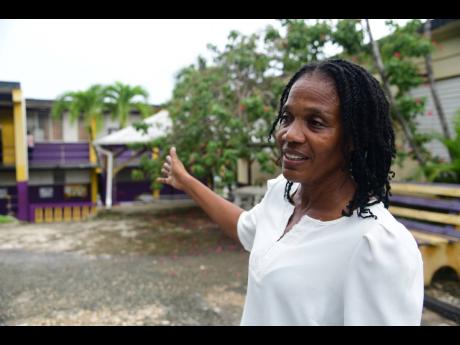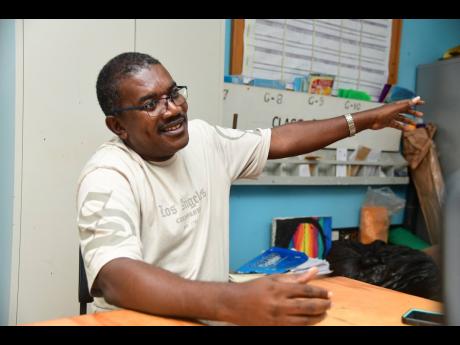‘Un-Happy’ Grove High
Long-standing transportation woes return in Beryl-delayed school year
As Hurricane Beryl wreaked havoc on the facilities at the Portland-based Happy Grove High, the damage extended well beyond the immediate impact of the storm.
The official start of school has been pushed back a few weeks, giving administrators time to figure out how to help some students get to the institution.
Travelling to school is a daunting and expensive task for some pupils, especially those impacted by the extensive roadwork leading from communities in St Thomas. And even though requests have been made to various political representatives to provide a school bus for the area, nothing has come.
Last week, administrators dreaded the long evenings they will have to wait as they try to find transportation for students to get home after school, noting that the transportation issues have affected attendance and learning over the years.
Devon Wilson, head of the Mathematics Department, said there are many lessons that the authorities could take from Happy Grove’s experience to better prepare for hurricanes.
“For instance, Harvey Hall, that main building, we had some issues there. If those issues were being dealt with in a timely manner, maybe the damage would have been less,” said Wilson. “And even the auditorium, some of the damage is from corrosion of the metals because it was built ... more than 30 years ago.
The roofless auditorium also houses classrooms, laboratories, and other facilities.
The school’s longstanding maintenance problems were evident in other buildings as well, with leaking roofs, missing windows, and pigeon infestations that have left waste scattered throughout. Bats have also overrun several top-floor classrooms in one of the buildings.
“I don’t know if it is a resource problem, but I don’t think how we approach education in Jamaica is done equitably,” he reasoned. “We send the best students to the best schools, and we give the best schools better resources. If Jamaica’s educational outcomes are going to change, it cannot be like that. Schools are supposed to be given what they want.”
Wilson added that it makes no sense to bundle students – many of them with severe learning disabilities – in classes of 60 and upwards, adding that many of such students arrive at 10 a.m., two hours late.
“They already have challenges and nothing is being done to improve transportation for our students and those students are travelling 30-35 miles to get to school,” he continued, noting that the concerns regarding the deteriorating infrastructure at the school and about the students’ transportation woes have repeatedly been raised to the authorities.
Some students, the teacher said, do not reach home until 10 o’clock at night.
According to the administrators, it would take at least $2 million annually to maintain the century-old institution. Painting one of the mutistorey buildings could cost hundreds of thousands of dollars, Principal Monique Grant-Facey told The Sunday Gleaner.
Meanwhile, the breakdown in maintenance over the years, coupled with the passage of Hurricane Beryl, has resulted in desperate times at Bull Savannah Primary School, where, in addition to shifting timetables for varying grades, Principal Colin Cameron has been hosting classes, particularly grades five and six students, outside under sheds.
The roof of the aged school building, which houses the two grades, was completely torn off by the storm, and widespread termite infestation was detected. It will take detailed treatment, admitted Cameron, noting the high cost of such, and that the grades five and six block will not be ready until January.


